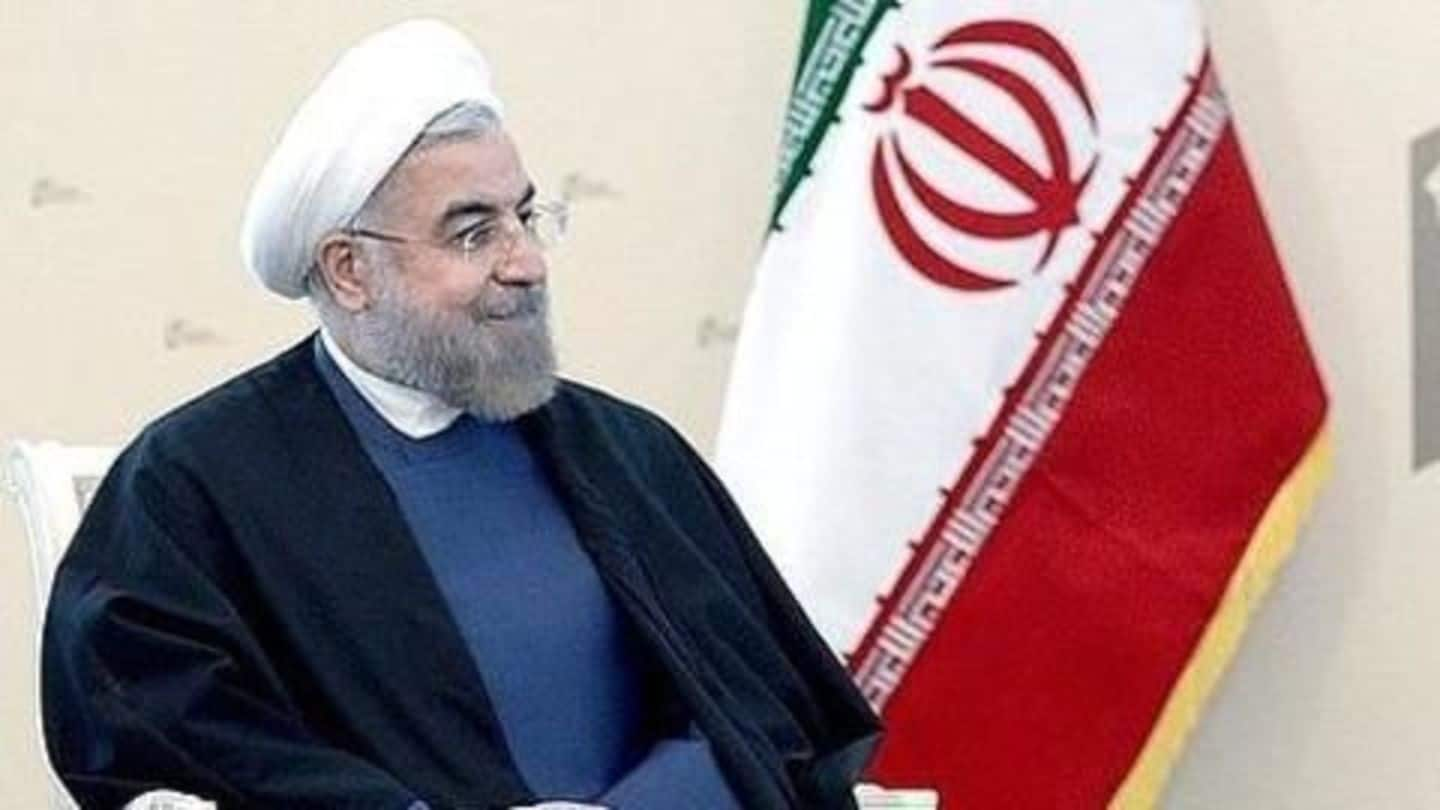
Iranians mark 38th anniversary of 1979 revolution
What's the story
Thousands of Iranian citizens poured on to the streets in Tehran to commemorate the 38th anniversary of the Islamic Revolution of 1979. The celebrations come amidst renewed tensions between Iran and the new US President Donald Trump. Citizens chanted anti-US and anti-Israel slogans at Tehran's Freedom Square. President Rouhani vowed to "strongly confront any war-mongering policies" of neighbours and others.
Background
Iran: Early history
In the late 1800s Iran was a divided state under the Qajar Dynasty. In 1925, Reza Shah Pahlavi made Iran a constitutional monarchy, bringing about new political positions, including that of a prime minister and introduced several social changes. He began the modernization of Iran's economy and industry. He abolished Islamic laws and replaced them with western ones, seeking to liberalize the country.
Invasion
The allied invasion
Iran's trade ties with Germany irked the allied powers. The Shah preferred trade with Germany, as the Germans didn't show imperialistic tendencies like the Soviets and the British. However, he claimed neutrality in WW2. The secular Shah, had even rescued 1500 Jews and granted them Iranian citizenship to escape persecution in Germany. Even so, allied troops invaded Iran and ousted the Shah in 1941.
Do you know?
Oil wealth: The reason behind the invasion
Soviet and British forces were worried about growing ties between the Shah and Germany. The invasion was a means to secure Iranian oil fields and supply lines for allied troops in World War 2. The Shah was replaced by his son Mohammad Reza Pahlavi.
1953 Coup
BP and the 1953 coup
The Anglo-Iranian oil company, now BP had monopoly on all oil proceeds from Iranian oil fields. In 1951, Mohammad Mosaddegh became Iran's first democratically elected Prime Minister. He nationalized the Anglo-Iranain company and returned profits to the Iranian people. He also lambasted the Shah for being a western-puppet. In 1953, a joint operation by British and US intelligence overthrew Iran's only democratically elected government.
Mohammad Reza
Shah begins consolidating power
After the coup, the Shah, Mohammad Reza Pahlavi began a series of reforms to westernize the country. He began the White Revolution in 1963, to introduce land reforms in an attempt to create a base of support among peasants and working classes. However, the reforms disenchanted the intelligentsia and working classes, while also failing to consolidate support from lower classes.
Information
The rise of Khomeini
Disenchantment with the White Revolution was primarily because of the Shah's disconnect with the Iranian people. His opulence was condemned as many in Iran were still struggling with poverty. This gave way for the rise to prominence of Shia Cleric Ayatollah Ruhollah Khomeini.
Ideology
Ideological beginning of the revolution
Shia clerics began capitalizing on the mismanagement of Iran's westernization. Khomeini openly defied the Shah's western thinking and dilution of Iran's cultural prosperity. He was arrested and sent into exile in 1964, adding to people's disenchantment with the Shah. Khomeini also found support in democratic and communist groups in the country, fed-up of economic mismanagement and disparity that was plaguing the country.
1970-1977
The Shah's opulence
In 1971, the Shah organized the 2,500th anniversary of the founding of the Persian Empire. The celebrations were condemned as Iranian citizens were not allowed to enter, while western tourists and workers drank wine and partied. The 1970s oil-boom also failed to improve Iran's economy, increasing inflation drastically. Meanwhile, the royal family continued to reap a majority of the benefits from the oil trade.
Protests
Protests, backlash
By 1978, Khomeini began spearheading protests in Iran from exile in Iraq. The protests were dealt with brutally by the Shah and the Army, increasing public anger toward his regime. By September, the Shah changed tactics and acceded to protesters demands, but the protests continued, fueled by Khomeini's sermons and speeches. Khomeini moved to Europe, where even the BBC portrayed him as a "freedom-fighter."
Abdication
Shah out, Khomeini in
By December 1978, the Shah fled from Iran and a government under Shahpour Bakhtiar was formed. All the while, people assumed that Khomeini was in support of a secular democratic government. Bakhtiar invited Khomeini back to Iran on 1 Feb 1979. However, on his return, Khomeini overthrew the government and called for setting up an Islamic Republic, ruled by Sharia.
Do you know?
Biggest revolution in history?
Sources said 10% of Iran's population participated in the revolution. In contrast, the Russian, and French revolutions had just more that 1% participation. Hence, the Islamic revolution is considered the largest revolution in modern history. February 11 is the "Islamic Revolution's Victory Day."